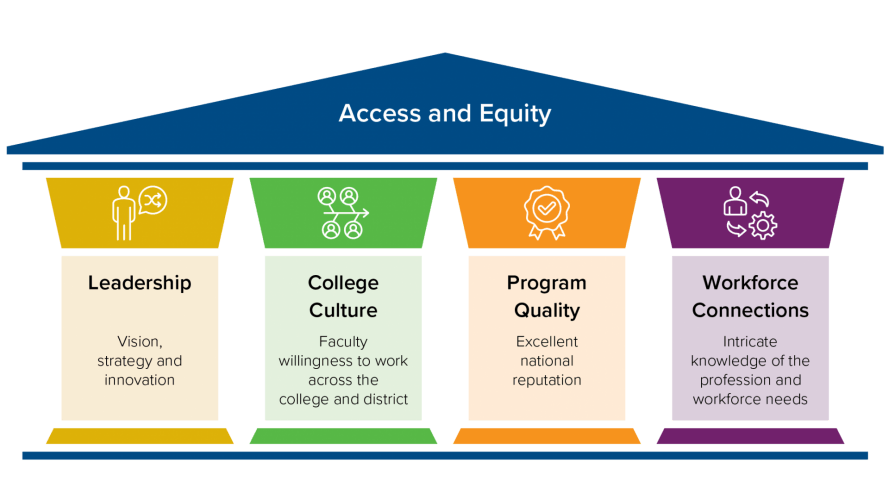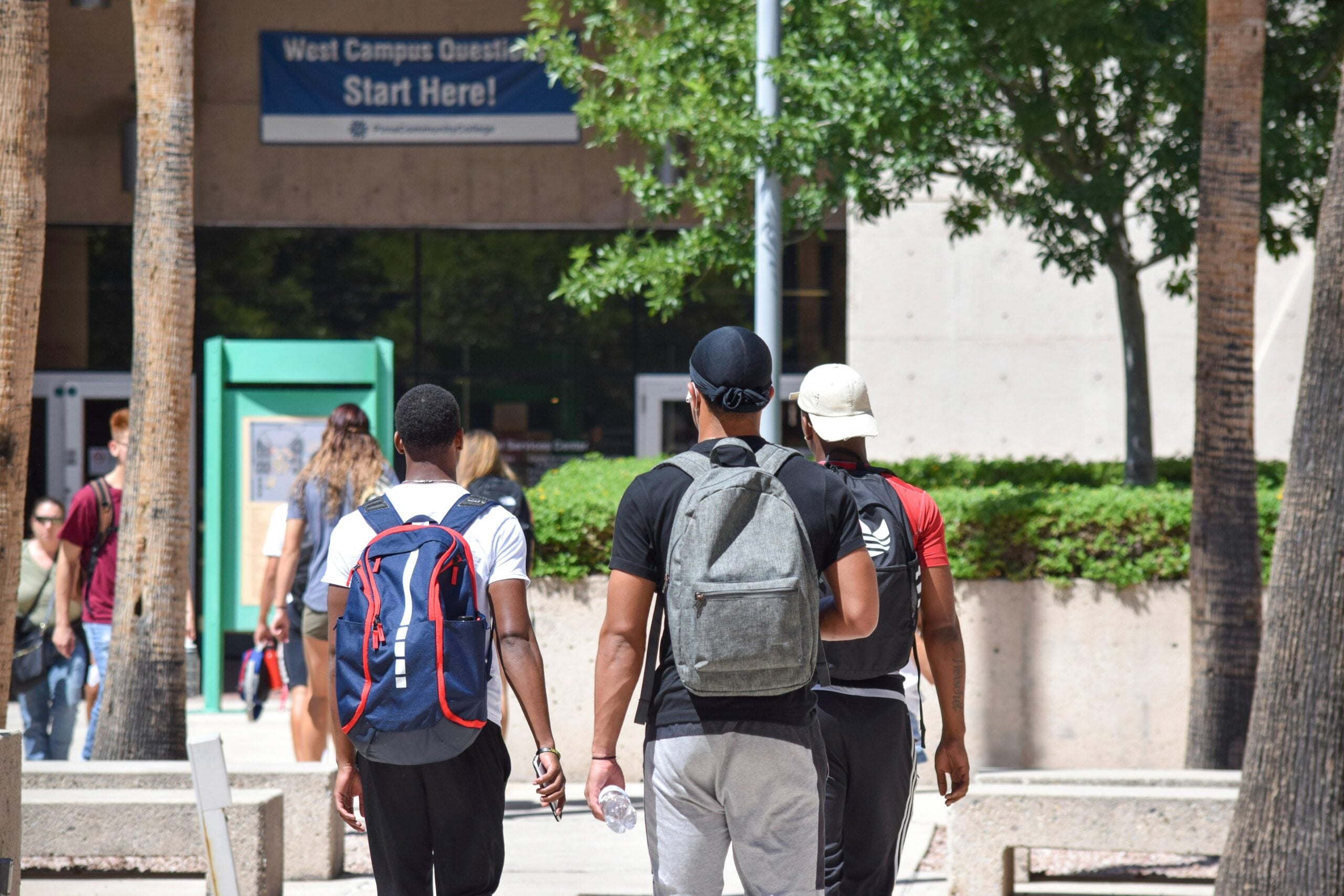A team of researchers at the UCLA School of Education and Information Studies and their colleagues at California community colleges have teamed with UC Davis Wheelhouse to conduct and publish new research on California’s relatively new Community College Baccalaureate (CCB) programs.
Challenged to meet the burgeoning need and demand for college graduates, in 2015 the state established the community college baccalaureate degree pathway as a pilot effort allowing California’s two-year postsecondary system, the California Community Colleges (CCCs), to confer four-year degrees. In 2021, Governor Newsom signed new legislation allowing existing CCBs to emerge from pilot status and continue operations indefinitely, and enabling up to 30 additional community colleges statewide to develop additional CCBs each year.
The workforce-oriented four-year degrees mark a significant change in state policy with implications for bachelor’s degree access and affordability. The researchers believe that in order to improve social and economic mobility, it is critical that education researchers, practitioners, and policymakers examine the extent that California CCBs close existing racial equity gaps in educational attainment.
While research evaluating CCB programs is just emerging, in 2020, a report by the California Legislative Analyst’s Office highlighted important benefits of the program, including low costs and high graduation rates. The analysis also noted alternative ways to meet workforce needs and access to bachelor’s degree programs.
In a new research brief, Benefits and Opportunities: California’s Community College Baccalaureate Programs, UCLA doctoral student Davis Vo, UCLA education professor Cecilia Rios-Aguilar and Hai Hoang, acting dean of San Diego Mesa Community add to understanding of the new program by providing a more detailed description of the impact of CCBs in California, with particular focus on improvements to college access and workforce preparation. The researchers examine statewide growth in enrollment since program inception in 2016. They also report disaggregated graduation outcomes and student-reported employment and income gains post-degree, while identifying data needs and recommending a more intentional focus on the program’s opportunity to narrow attainment gaps.

Among the highlights of their findings:
- Total enrollment in California’s Community College Baccalaureate programs has increased steadily since they were established in 2016; the 2020 cohort showed the highest participation despite the COVID-19 pandemic and declining community college enrollment overall.
- Once admitted to a CCB program to begin upper division coursework, 67% of students obtain a bachelor’s degree in two years; 78% complete in three years.
- CCBs have provided an affordable, accessible pathway to baccalaureate attainment for older students, first- generation college students, students from economically disadvantaged backgrounds, students experiencing homelessness, students with disability, students impacted by the foster care system, student veterans, and students of color.
- 56% of CCB graduates reported they would not have pursued a bachelor’s degree had it not been offered at their community colleges.
- 2020 graduates reported a significant increase in income after earning a bachelor’s degree; on average, students earned $18,400 more, a 37% increase.
The researchers contend CCB adaptation requires an evolved understanding of the ways that students interact with the community college system. The urge policymakers, the colleges, and those who study them to develop new vocabulary, newer and more comprehensive data, and further research to inform improvements to CCB programs. The research brief offers four specific recommendations including:
Improve Data Collection and Connections
Center Racial Equity
Support Graduate School Pathways
Strengthen Job Pathways
The full research brief, Benefits and Opportunities: California’s Community College Baccalaureate Programs with detailed findings and recommendations is available on UC Davis Wheellhouse website here.
A second brief, Pioneering the Community College Baccalaureate in California: The Experience of West LA College, authors Aracely Aguiar, Carmen Dones, Patricia Quiñones, Cecilia Rios-Aguilar, Liza Chavac and Patrosinio Cruz closely examines the development of the dental hygiene baccalaureate program at West Los Angeles College (WLAC)
The brief provides a short synopsis of the California and national research base on Community College Baccalaureate Programs and highlights lessons learned from the successful design and implementation of the dental hygiene CCB program at WLAC. The report includes recommendations for policymakers and other community colleges that may develop CCB programs in the future
The brief’concluded that as California moves to produce more bachelor’s degrees, particularly for Black and Latina/o/x students, California CCB programs have increased both access and attainment for participating students. Efforts such as the WLAC’s dental hygiene CCB have shown what is possible: high graduation rates at a low cost for students who are working adults, low-income, and students of color. The economic and labor market demand for a diverse, college-educated workforce is clear, and community colleges offering CCBs have shown they can contribute to meeting it.
The full research brief, Pioneering the Community College Baccalaureate in California: The Experience of West LA College is available on the UC Davis Wheelhouse website here
UC Davis Wheelhouse is a research institution working to support and resource current and future leaders in the California Community Colleges system. The strength of that leadership is essential to the success of the California economy and to the state’s culture of broad opportunity for a diverse population. Cecilia Rios-Aguilar, Professor of Education and Associate Dean for Equity and Inclusion at the UCLA Graduate School of Education and Information Studie, is an affiliated Scholar with UC Davis Wheelhouse.
